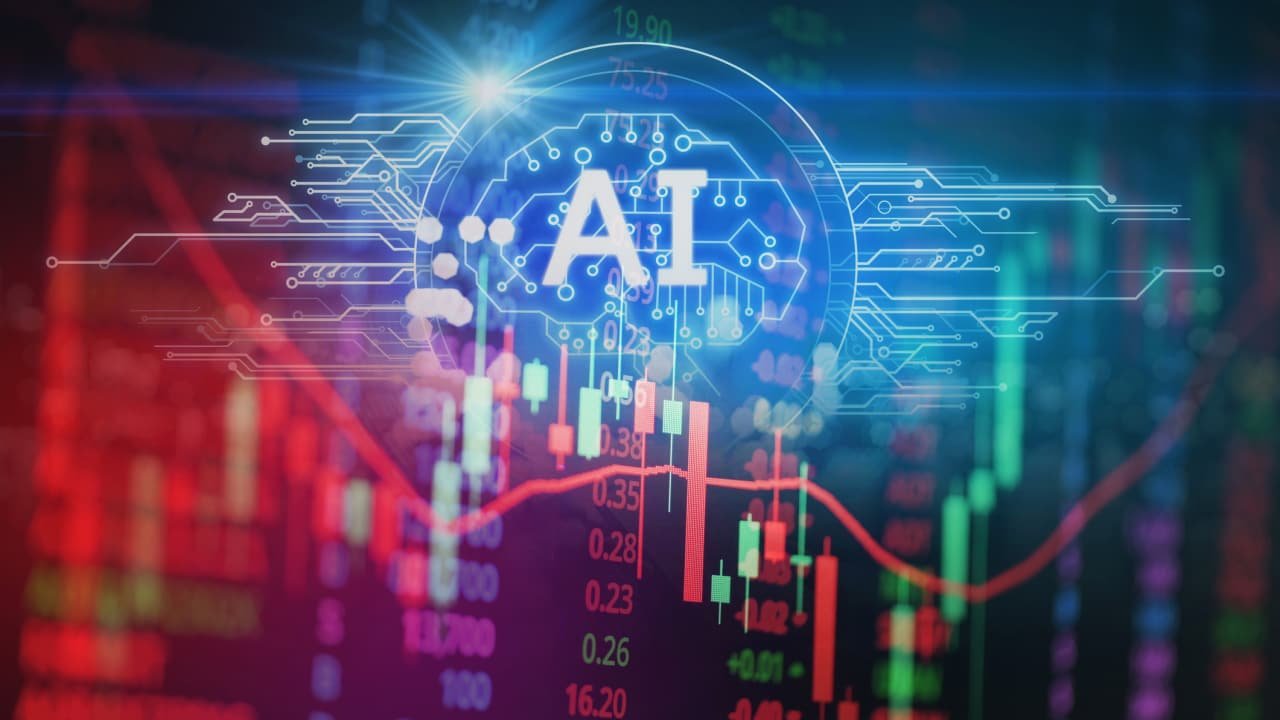
European AI stocks dropped despite broader market growth.
The rise of AI in European Market response
AI is not a new concept. But it has grown phenomenally in the last few years, especially with the rise of generative AI. Generative AI such as OpenAI’s GPT-5 and Anthropic’s new models can not only analyze data but can also create new material codes and designs. These models have revolutionized many industries, including software data analytics and financial services. Companies in Europe recognized this change early. They began investing heavily in AI to maintain their competitiveness and increase productivity. For example, companies such as German software giant SAP and France’s Dassault Systèmes integrated AI capabilities into their existing products. Companies such as the London Stock Exchange Group (LSEG) and Sage Group also took significant steps to make their data and software solutions AI-enabled.
Why the sudden change and decline?
This picture has changed dramatically in recent weeks. So European AI adopter stocks have seen a sudden and sharp decline. There are many reasons behind this decline, which are interconnected. So the arrival of new powerful AI models The biggest reason is the unveiling of new AI models, which have caused a stir in the market. New versions, such as OpenAI’s GPT-5 and Anthropic’s AI model created specifically for financial services, are far more powerful and versatile than their predecessor generations.
As well as price competition, these new models are often cheaper or provide more efficiency at a lower cost. Which is a big threat to companies that have built their business model on expensive proprietary data and complex integration. And if a company can provide the same or better service using cheaper and more powerful AI models. Then it will become difficult for old companies to maintain their high value.
Challenge to business model AI in European market
These new models have challenged the traditional business model. And for example a software company that previously sold a complex and expensive system for a specific task can now perform that task much more easily and at a lower cost by a general-purpose AI model. And this makes investors wonder if the current business model of these companies is sustainable. Also concerns over valuations which for some time now European AI adopter stocks have been overvalued. Investors bought these stocks at high prices in anticipation of future growth. But when new AI models exposed the weaknesses in these companies’ business models, investors realized that these stocks are not worth their current valuations. Investors considered SAP shares particularly vulnerable due to their high valuations.
Lack of return on investment
Investors also started worrying that the heavy investment made by these companies on AI is not giving enough returns. They saw that companies were spending a lot of money on AI, but this spending was not translating into immediate profits or solid competitive advantages. And competition from US rivals which
There is massive investment and innovation happening in the field of AI in the US. Also US companies like Adobe Microsoft and Salesforce are constantly launching new AI-based products and services. So the possibility of these US companies taking away market share from their European rivals has also put pressure on European adapter stocks. And a downgrade of the US company Adobe created a wave of skepticism across the market that crossed the Atlantic Ocean and reached Europe.
Weakening walls of data and proprietary technology
The competitive advantage of many European companies was based on their proprietary data or deep customer relationships. And for example data analytics firms like Experian and software companies like Sage Group thought that their unique data was their greatest strength. But new AI models that are trained on huge public datasets have challenged this assumption. They can now perform tasks that previously required proprietary data, making these companies’ exclusive data less important.
Also the performance of affected companies and their stocks which have affected many major European companies. According to reports such as Finimize and The Star, shares of some companies have fallen sharply since mid-July. And this decline is in stark contrast to the broader market. During the same period, London’s FTSE 100 index has risen by 2.5% and Europe’s STOXX 600 index has risen by 0.6%. Which shows that this decline is not across the entire market. But is particularly concentrated in AI adopter stocks.
The future of data and data analytics
This phenomenon also raises important questions about the future of data and data analytics. Is proprietary data still a key competitive advantage? Or will AI models trained on vast open datasets eventually reduce the need for proprietary data? The answer to this question is complex. And in some cases such as in financial services sensitive and specific data will still remain important. But in other cases such as in general-purpose software new AI models will be able to use proprietary data Investors will now have to carefully understand this difference. Europe’s approach is more cautious and regulatory-focused. Also, European companies often use AI to improve or augment their existing business models.
Conclusion What’s next AI in European market?
The recent decline in European AI adopter stocks is a clear warning. It shows that the impact of AI is much more complex and uncertain than we thought. Also, it is not just an engine of growth. And it is also a powerful force of creative destruction. After this event, two major trends will be seen in the market. Also, analysis and discretion. Investors will now be more prudent about AI.
They will not just invest in AI-related companies but will look for companies that can turn AI into a long-term competitive advantage. Also, consolidation and restructuring. Some companies that will not be able to withstand the threat of AI may exit the market or be acquired by other companies. The companies that will survive and thrive will be those that can adapt their business models and make AI an integral part of their growth strategy. And this, in short, is not just a temporary fluctuation in the European stock market.






Excellent blog here Also your website loads up very fast What web host are you using Can I get your affiliate link to your host I wish my web site loaded up as quickly as yours lol
Hello i think that i saw you visited my weblog so i came to Return the favore Im trying to find things to improve my web siteI suppose its ok to use some of your ideas
Your blog is a beacon of light in the often murky waters of online content. Your thoughtful analysis and insightful commentary never fail to leave a lasting impression. Keep up the amazing work!
Hey there You have done a fantastic job I will certainly digg it and personally recommend to my friends Im confident theyll be benefited from this site
Your passion for your subject matter shines through in every post. It’s clear that you genuinely care about sharing knowledge and making a positive impact on your readers. Kudos to you!
Your writing is a true testament to your expertise and dedication to your craft. I’m continually impressed by the depth of your knowledge and the clarity of your explanations. Keep up the phenomenal work!